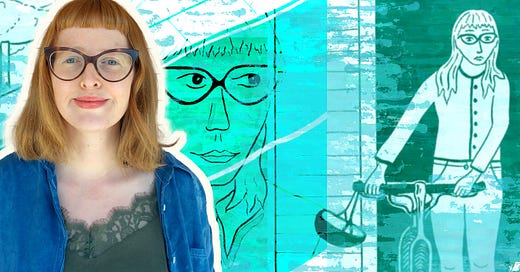Drawing Attention: The Cartoonist Asking the Tough Questions
When drafting her comics on the off-hours of her numerous jobs, Narratively contributor Issy Manley aims to show how complex our lives really are under the surface.
Issy Manley doesn’t usually think of her work as personal – even when it’s about her own body. In her comic for Narratively, “The American Healthcare System Doesn’t Care About How Much My Vagina Hurts,” she describes her struggle navigating the healthcare field with chronic genital pain. Issy uses her life experiences to illustrate (literally) how health care structures, labor struggles, and other systemic issues show up in our individual lives, something she’s particularly invested in as a teacher and service worker.
Issy sat down with Narratively to chat about what makes comics perfectly suited for autobiography, how she maintains her creativity while working multiple gigs, and what she would make if she could devote all her time to art.
Keep reading with a 7-day free trial
Subscribe to Narratively to keep reading this post and get 7 days of free access to the full post archives.




